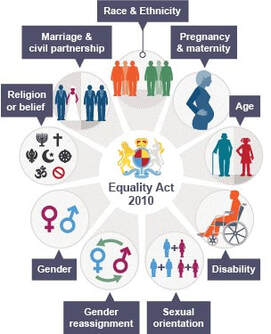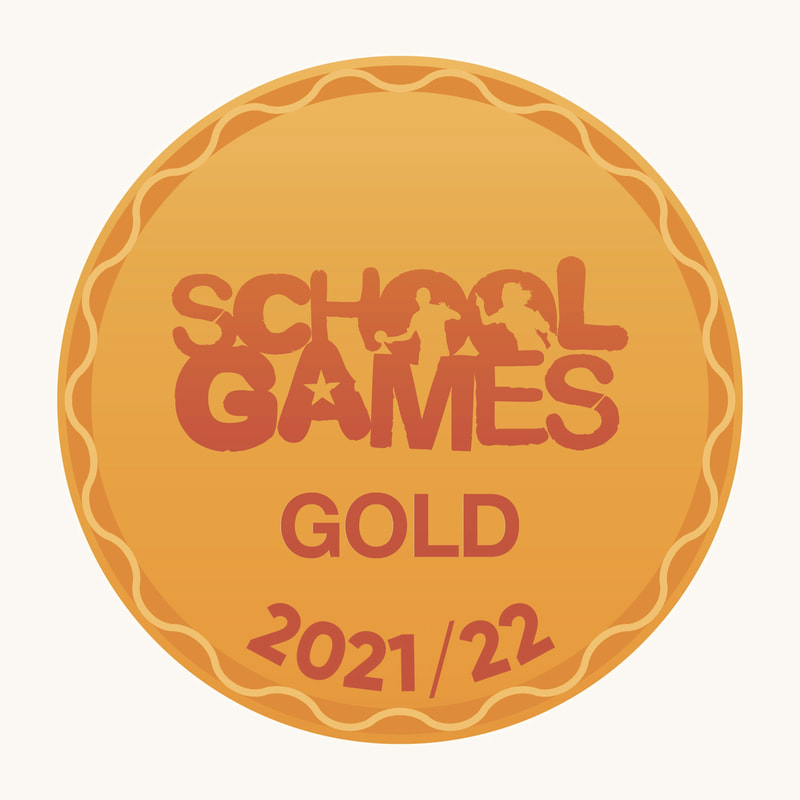PSHE (Jigsaw) Curriculum
|
Curriculum Intent
At George Fentham, it is our intent that all children will be ‘lifelong learners’ with the confidence and ability to develop their skills and understanding when having new experiences, meeting new challenges and finding themselves in unfamiliar situations. We offer a nurturing learning environment in which each child is encouraged to develop their full potential and where their achievements and successes are celebrated and rewarded.
As a school, we believe that children are all individuals and, therefore, we aim to encourage mutual respect, responsibility and foster self-esteem in a happy and caring atmosphere. The teaching and learning of PSHE using the Jigsaw programme supports this. Through using Jigsaw our children acquire knowledge, understanding and the skills they need to manage their lives now and in their futures. It develops the qualities and attributes children need to thrive as individuals, family members and members of society and the global community.
Jigsaw is implemented throughout the whole school during weekly whole class Jigsaw lessons focusing on different topics each term and is embedded through all lessons and the whole school day with everyone supporting and encouraging the children they interact with to use the skills they are developing and to make links to other areas of learning. It is also taught through our assemblies and school values:
Be Ready, Respectful and Safe.
The aims of PSHE and Jigsaw within George Fentham are to provide children with:
- accurate and relevant knowledge
- opportunities to create personal understanding
- opportunities to explore and challenge a range of values, attitudes, beliefs, rights and responsibilities
- a range of skills and strategies to live a healthy, safe, fulfilling, responsible and balanced life
Jigsaw deals with the diverse beliefs, values and attitudes that individuals and societies hold. It helps pupils to develop themselves, their understanding of the world, and their ability to communicate their feelings. Children at George Fentham also acquire an understanding and experience of British values that are necessary if they are to grow in an ever changing society, value themselves, respect others, appreciate differences and feel confident and informed as a British citizen.
Further details can be found by clicking on this link and a parent/carer guide can be found here.
At George Fentham, it is our intent that all children will be ‘lifelong learners’ with the confidence and ability to develop their skills and understanding when having new experiences, meeting new challenges and finding themselves in unfamiliar situations. We offer a nurturing learning environment in which each child is encouraged to develop their full potential and where their achievements and successes are celebrated and rewarded.
As a school, we believe that children are all individuals and, therefore, we aim to encourage mutual respect, responsibility and foster self-esteem in a happy and caring atmosphere. The teaching and learning of PSHE using the Jigsaw programme supports this. Through using Jigsaw our children acquire knowledge, understanding and the skills they need to manage their lives now and in their futures. It develops the qualities and attributes children need to thrive as individuals, family members and members of society and the global community.
Jigsaw is implemented throughout the whole school during weekly whole class Jigsaw lessons focusing on different topics each term and is embedded through all lessons and the whole school day with everyone supporting and encouraging the children they interact with to use the skills they are developing and to make links to other areas of learning. It is also taught through our assemblies and school values:
Be Ready, Respectful and Safe.
The aims of PSHE and Jigsaw within George Fentham are to provide children with:
- accurate and relevant knowledge
- opportunities to create personal understanding
- opportunities to explore and challenge a range of values, attitudes, beliefs, rights and responsibilities
- a range of skills and strategies to live a healthy, safe, fulfilling, responsible and balanced life
Jigsaw deals with the diverse beliefs, values and attitudes that individuals and societies hold. It helps pupils to develop themselves, their understanding of the world, and their ability to communicate their feelings. Children at George Fentham also acquire an understanding and experience of British values that are necessary if they are to grow in an ever changing society, value themselves, respect others, appreciate differences and feel confident and informed as a British citizen.
Further details can be found by clicking on this link and a parent/carer guide can be found here.
Curriculum Implementation
For further information about how we implement this intent, please see our PSHE Curriculum Map -
PSHE Curriculum Map
For further information about how we implement this intent, please see our PSHE Curriculum Map -
PSHE Curriculum Map
|
Protected Characteristics
At George Fentham Endowed School we recognise how important it is that all children have an understanding of the world they are growing up in and learn how to live alongside, and show respect for, a diverse range of people. Through the teaching of personal development in Jigsaw (our PSHE scheme of work) children develop age-appropriate knowledge and understanding of the 'nine protected characteristics', during their time at our school. Our inclusive approach starts with children in Nursery and Reception and continues to develop through the age ranges to Year 6. |
The following Approaches are used:
Ground rules are fundamental to creating and maintaining an inclusive and safe teaching and learning environment. Establishing such an environment for both pupils and teachers is important for PSHE education lessons – especially those focusing on equality and the protected characteristics, as it: enables children to feel comfortable exploring values and attitudes enables children to express their own opinions and consider the views and opinions of others, without the fear of negative feedback, and only if they choose to. We believe it is crucial to establish a safe, open and inclusive learning environment based on trusting relationships between all members of the class, adults and students alike. To enable this, it is important that ‘ground rules’ are agreed and owned at the beginning of the year and are reinforced regularly. Students devise their own Jigsaw Charter at the beginning of the year so that they have ownership of it.
One of the most important elements of the Charter is the Right to Pass, where children and young people understand fully that they do not have to participate in the discussion/activity if they do not wish to. This creates a space where they can feel safe and their wishes are taken seriously by adults and peers alike. This is vital when teaching about safeguarding in both an implicit and explicit way. Children choose whether they speak or not and their right to pass is upheld and respected.
The Jigsaw Charter refers to confidentiality too. Although, realistically, it is unlikely that complete confidentiality will be observed, it is important that children/young people are taught to respect the privacy of others and to do their best to keep what is said in Jigsaw lessons confidential. Their teacher will emphasise that they cannot promise complete confidentiality as they must report any information relating to safeguarding concerns.
Throughout Jigsaw, the mindful approach to PSHE, students are encouraged by staff to ask questions, to find someone who can help them, and ultimately to help themselves by becoming more independent.
‘Celebrating Difference’ is the most pertinent of units for teaching about the protected characteristics, as it focuses on similarities and differences and teaches about diversity, such as disability, racism, gender, family composition, friendships, and conflict. Children learn to accept everyone’s right to ‘difference’, and most year groups explore the concept of ‘normal’. Bullying – what it is and what it isn’t, including cyber and homophobic bullying – is an important aspect of this unit.
The ‘Relationships’ unit also has a wide focus, looking at diverse topics such as families, friendships, equality in relationships, and love and loss – all of which can help to deliver the vital messages behind the Equality Act. A vital part of this unit is about safeguarding and keeping children safe; this links to cyber safety and social networking, as well as attraction and assertiveness; children learn how to deal with conflict, their own strengths and self-esteem. They have the chance to explore roles and responsibilities in families and look at stereotypes. All Jigsaw lessons are delivered in an age- and stage-appropriate way so that they meet pupils’ needs and can help them understand the wider world.
You can find further information about 'The Equality Act - Making Equality Real' by clicking here.
Ground rules are fundamental to creating and maintaining an inclusive and safe teaching and learning environment. Establishing such an environment for both pupils and teachers is important for PSHE education lessons – especially those focusing on equality and the protected characteristics, as it: enables children to feel comfortable exploring values and attitudes enables children to express their own opinions and consider the views and opinions of others, without the fear of negative feedback, and only if they choose to. We believe it is crucial to establish a safe, open and inclusive learning environment based on trusting relationships between all members of the class, adults and students alike. To enable this, it is important that ‘ground rules’ are agreed and owned at the beginning of the year and are reinforced regularly. Students devise their own Jigsaw Charter at the beginning of the year so that they have ownership of it.
One of the most important elements of the Charter is the Right to Pass, where children and young people understand fully that they do not have to participate in the discussion/activity if they do not wish to. This creates a space where they can feel safe and their wishes are taken seriously by adults and peers alike. This is vital when teaching about safeguarding in both an implicit and explicit way. Children choose whether they speak or not and their right to pass is upheld and respected.
The Jigsaw Charter refers to confidentiality too. Although, realistically, it is unlikely that complete confidentiality will be observed, it is important that children/young people are taught to respect the privacy of others and to do their best to keep what is said in Jigsaw lessons confidential. Their teacher will emphasise that they cannot promise complete confidentiality as they must report any information relating to safeguarding concerns.
Throughout Jigsaw, the mindful approach to PSHE, students are encouraged by staff to ask questions, to find someone who can help them, and ultimately to help themselves by becoming more independent.
‘Celebrating Difference’ is the most pertinent of units for teaching about the protected characteristics, as it focuses on similarities and differences and teaches about diversity, such as disability, racism, gender, family composition, friendships, and conflict. Children learn to accept everyone’s right to ‘difference’, and most year groups explore the concept of ‘normal’. Bullying – what it is and what it isn’t, including cyber and homophobic bullying – is an important aspect of this unit.
The ‘Relationships’ unit also has a wide focus, looking at diverse topics such as families, friendships, equality in relationships, and love and loss – all of which can help to deliver the vital messages behind the Equality Act. A vital part of this unit is about safeguarding and keeping children safe; this links to cyber safety and social networking, as well as attraction and assertiveness; children learn how to deal with conflict, their own strengths and self-esteem. They have the chance to explore roles and responsibilities in families and look at stereotypes. All Jigsaw lessons are delivered in an age- and stage-appropriate way so that they meet pupils’ needs and can help them understand the wider world.
You can find further information about 'The Equality Act - Making Equality Real' by clicking here.









